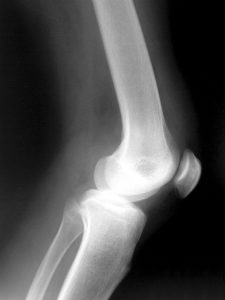A Florida medical malpractice lawsuit could reopen a contentious debate over Amendment 7, a 2004 constitutional amendment that aims for transparency in health care by requiring providers to disclose certain medical error records.
As our Palm Beach medical malpractice lawyers can explain, the health care industry has had it out for Amendment 7 pretty much since the moment it passed by popular vote nearly two decades ago. It’s withstood several challenges, but that doesn’t mean it’s invincible – particularly with four new faces on the Florida Supreme Court since the last major ruling on it. If the state high court is persuaded by an appellate court panel to reconsider – and ultimately change – its position, it will mean plaintiffs in Florida medical malpractice cases will have a tougher time gathering pertinent information on the defendant provider’s medical mistakes.
What is Amendment 7, Florida’s Patients’ Right to Know?
Florida’s “Patients’ Right to Know” amendment (Article X, Section 25 of the Florida Constitution) gives patients the right to access medical records made or received in the course of business by a health care provider or facility relating to any adverse medical incident.
As explained by the U.S. Department of health & Human Services Office of Inspector General, an “adverse medical incident” is one in which a patient’s care results in an undesirable outcome, such as a prolonged patient stay, permanent patient harm, life-saving intervention necessity, or death. This would not be a patient succumbing to an underlying disease, but rather the result of errors, known side effects, substandard care, or complications that were unexpected but possibly unavoidable. Not every adverse medical incident is the basis for a medical malpractice lawsuit, but most medical malpractice lawsuits are the result of an adverse medical incident. Patients or surviving loved ones who are weighing legal action against a health care facility or provider may cite this amendment when requesting relevant incident reports and other records.
Obviously, health care facilities and insurers were opposed to this from the beginning, but state constitutional amendments are tough to change. Recently though, the First District Court of Appeal ruled 2-1 against a medical malpractice plaintiff who sought relevant records under Amendment 7. The appellate panel majority then took it a step further and implored the Florida Supreme Court to reconsider the 2005 amendment, saying:
- Years of court decisions on the issue have resulted in expanding Amendment 7 beyond what voters intended, in turn “radically transforming” medical malpractice litigation ion Florida.
- Adverse medical records created for submission to a peer review organization under the federal Patient Safety and Quality Improvement Act (PSQIA) should be shielded from mandated disclosures under Amendment 7.
For context, the PSQIA was passed in 2005 – just one year after Amendment 7 – with the goal of improving patient safety and care quality with the creation of a voluntary, confidential, and non-punitive system through which health care providers could freely report medical mistakes and near-misses. The idea was that by facilitating a free flow of information – unincumbered by legal risks – health care facilities and researchers would be able to more accurately scrutinize problematic trends and policies. The ultimate goal is minimizing medical risk to patients. The PSQIA shields health care providers who voluntarily collect data on medical mistakes for the purpose of turning it over to this federal program by classifying those records as “privileged.” They are labeled as “patient safety work product,” and protected from public disclosure.
Is There a Conflict With Federal Law?
Continue reading

 South Florida Injury Lawyer Blog
South Florida Injury Lawyer Blog









